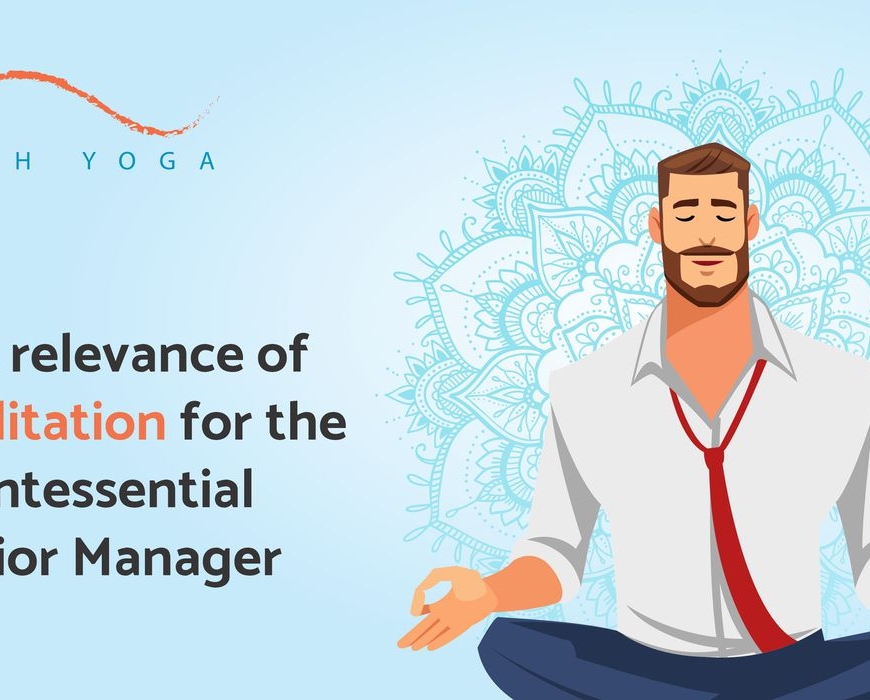More often than not, we find ourselves drenched in the spiral of unwanted thoughts of negativity and remorse. These thoughts render us feeling helpless and engrossed in emotional pressure. The primary reason behind all these emotions is stress and anxiety, which in turn take the shape of negative and toxic thoughts. The mind tends to oscillate among a number of catastrophic circumstances or consequences, which strain the cognitive ability of the brain. The body responds to such kind of negativity by releasing stress hormones. When the negativity persists for a longer period, people face all kinds of physical problems such as digestive problems, urinary problems, distorted sleep schedules, and weakened immune systems.
The Theory of Cognitive Therapy: Balancing Negative Thoughts
According to the theories of cognitive therapy, your thoughts and values determine the way you see yourself and the world around you. Thoughts and beliefs that are grounded in pessimism can negatively impact your emotional feelings and mental health. These harmful perceptions are common issues that can contribute to the symptoms of mood and anxiety disorders. The most common form of negativity that prevails is usually self-defeating beliefs. Self-defeating belief instils a sense of failure and dissatisfaction and thrives you to a state of self-doubt and deprecation. If your belief is that your self-worth is solely determined by your accomplishments, you will only feel fulfilled when you have an excellent career or reaching the desired status. Otherwise, you will continue to dwell in negativity and never find yourself worthy of anything in life.
Understanding the Origin of Your Negative Thoughts

Again, negative thought patterns are not necessarily always about you. Rather they only surface when you are faced with an issue or challenge. These negative thoughts pose a severe distraction on the cognitive and decision-making skills, lest reinforcing a sense of unworthiness and self-doubt. When a person is faced with unforeseen setbacks or obstacles, negative thinking patterns may cause you to over-analyze or exaggerate the severity of the situation.
This, in turn, will trigger unwanted anxiety and stress, and thus those negative and gloomy thoughts will be harboring in mind, vindicating the fact that you do not deserve to be happy or content. And the reason behind the same is you. Prolonged negative thoughts can take the shape of severe mental illnesses such as chronic depression, which can completely distort the mental sanity of a person.
How Negative Thoughts impact your actions and decisions?
When you think negatively for a considerable span of time, those thoughts affect your emotions and then those emotions, your behavior. If you continuously remind yourself that you are not good enough for anything in life, it will badly hamper your cognitive and decision-making skills. Negative thinking acts as a deterrent from choosing the right thing. It tends to blur the entire perception about yourself with unwanted judgments and theories, which curb the courage to stand up for oneself and thereby act as a repellent for positive thoughts.
You become agitated with everything around, and in some extreme cases, violence and atrocity also become a part of the personality due to constant negative thinking. You feel hopeless about yourself. You are tired and grumpy. Your interpersonal skills also suffer a lot. You tend to abstain from all happy and joyous activities. This, in turn, affects professional life as well, and you encounter a substantial fall in your productivity. Hence you start feeling worthless again. It is a vicious cycle on a continuous loop.
How can you work on them?
Recent studies have shown that excessive negative thinking can damage the neural structures that regulate emotions, memories, and feelings. Hence it is important to adopt a holistic approach to deal with the same. One of the powerful tools to combat the same is through yoga and meditation. Yoga is a process of creating a balance between the body and mind, to help in self-introspection to achieve contentment and liberation. On the other hand, meditation is predominantly a practice that advocates mindfulness and concentration to be directed towards a particular thought, object, or activity, lest being indifferent and oblivious about the rest. Let us have a look at some of the asanas that can help in achieving a positive outlook towards life.
Stretching of exhaling:
A deep inhalation process may not always be effective to calm the nerves and divert negative thoughts from the mind. Taking a deep breath is concerned with the sympathetic nervous system, which controls the fight to flight responses in the nervous system. But exhaling is associated with the parasympathetic nervous system, which influences our body’s ability to relax. So this can be useful yoga for mental health.
Equal Breathing (Pranayama):
This ancient practice of breathing is associated with Pranayama Yoga, in which the person inhales the same amount of time it exhales. One can practice equal breathing both in a sitting position as well as lying down. This has proven to be effective in mitigating the anxiety disorder issue and negative thinking.
Yogic Breathing :
The wellness practice of yoga envisages the physical and mental well being of a person. Breathing is an indispensable part of the same discipline. These Asanas promote a sense of calmness and tranquillity in the mind of the practitioner. This, in turn, facilitates to evade negative thoughts and set in positivity
Lion’s Breath:
An instant remedy to compulsive thoughts and emotional restlessness can be Lion’s Breath. It is a type of practice in which the person is required to sit in a kneeling position crossing the ankles and bringing the hands to the knees. Then breathing out through the mouth and vocalize “Ha” every time one exhales.
Butterfly Pose (Baddha Konasana)
A relatively simple postures that combine the healing powers of meditation, as the pose encourages to enter into a meditative state, which in turn envisages internal retrospection.
It can help to mitigate the self-defeating thought and prove to be an amazing yoga for mental health.
Extended Triangle Pose (Utthita Trikonasana)
It is a great posture for beginners and is a great way to help alleviate anxiety and depression. By tilting the body equally, distributing the energy flow, the body tends to get calmer and more balanced.
Half Moon Pose( Ardha Chandrasana)
The moon has a rich symbolic significance in yoga mythology, which is considered as an embodiment of serenity and calmness. Ardha Chandrasana has proven to be effective in cooling down the distressed and unstable mind, bringing in the sense of rejuvenation and positive energy. It exhibits calm and soothing energies, which help in improving Coordination and sense of balance. It opens up the body, encouraging better posture and improved self-esteem.
Legs-up-the-wall-pose (Viparita Karani)
This Yoga Asana calms a busy mind and brings in the sense of peace and tranquillity in the bodyI.t has two different types of viz,
- Classic–up-the-wall-pose: calms the anxious mind in a stressful day by making it an ideal pose for anxious people.
- Legs up the wall with bolster pose: demands for a completely relaxed lower back and is supported by boister.It is said that 20 mins of this affect the nervous system the same as a nap.
Easy Pose (Sukhasana)
The best benefit of the Sukhasana pose is that it helps to regulate the breathing cycle of the body. It aids in having a clean breath, which brings in the sense of tranquillity in the body. It helps to stretch the hips wide open, which makes you feel lighter. It also facilitates to straighten the alignment of the back and help in maintaining a good body posture. The asana is very easy to do, as the name suggests, and thus proves to be an important yoga for daily life.
Minimizing and removing negative thoughts is not easy. The brain is more sensitive towards negative thoughts rather than positive or neutral ones. This has posed severe mental suffering and disturbed balance of mind. Fortunately, we have some amazing yoga poses for mental health, which can promote calm peace and joy and thus help us smile a little more.
Our Recent Workshop
We have just started with session 1 of Meditation 101, our exclusive Meditation workshop for beginners. You can check about it here





Add Comment